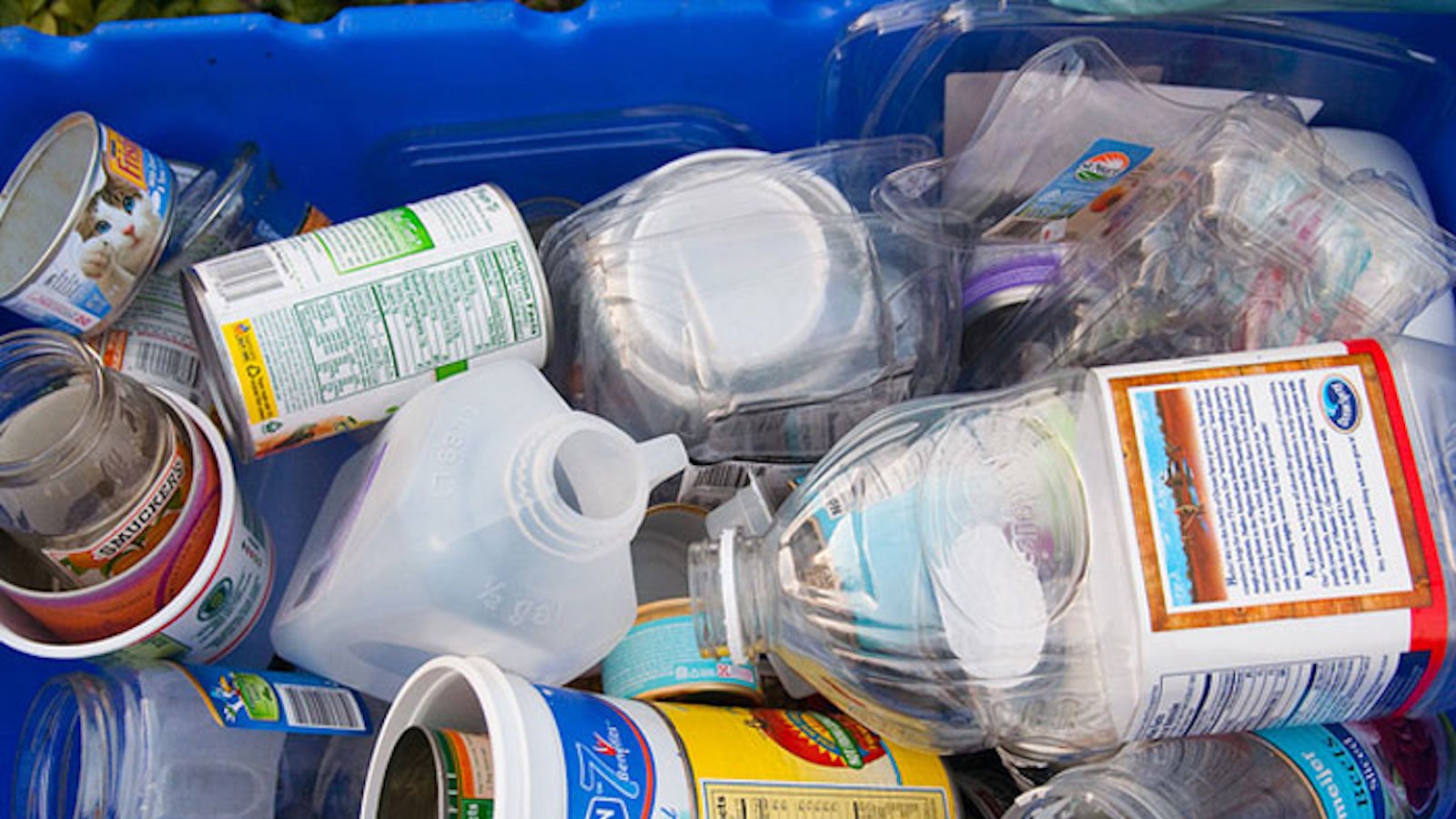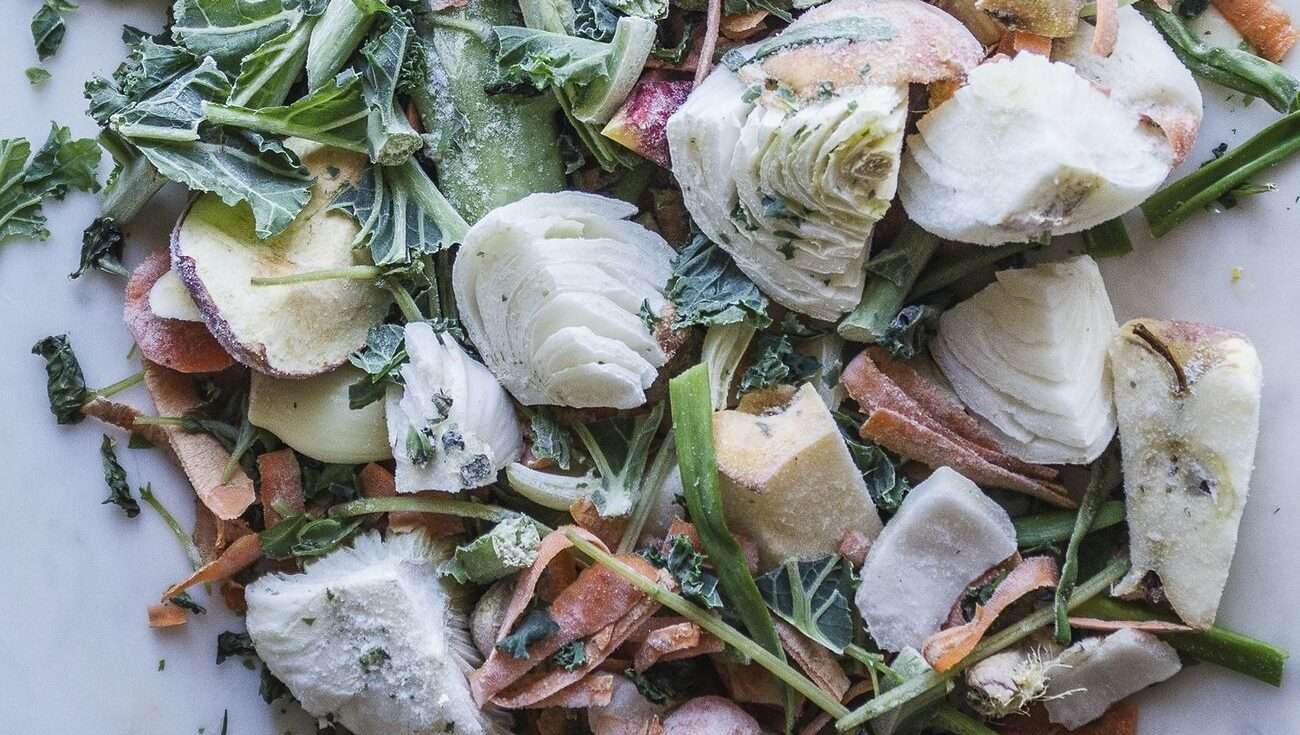Recycling. The 21st century’s answer to fixing our environmental messes one aluminum can at a time. But as we diligently segregate our plastic bottles from our paper goods, we can’t help but ask the age-old question: what the heck do we do with all this stuff? In this article, we tackle the epic battle of inorganic vs. organic materials in the world of recycling. So grab your reusable water bottle and let’s dive headfirst into the dumpster diver’s dilemma.
Understanding the Difference Between Inorganic and Organic Materials
Have you ever wondered why some materials are considered inorganic while others are organic? Let’s break it down in a way that even a potato could understand:
First of all, inorganic materials are basically like the boring, rule-following students in school. They are made up of non-living substances like metals, rocks, and minerals. They don’t need any nurturing or care; they just exist in their own little world, much like that one weird kid who always sits alone at lunch.
On the other hand, organic materials are like the popular kids in school – the ones that everyone wants to be friends with. These materials are made up of living organisms or come from living things, like plants and animals. They require constant attention and care, kind of like a needy pet that always wants to be fed and walked.
So, in a nutshell (or a compost bin), inorganic materials are the dull, lifeless duds of the material world, while organic materials are the lively, vibrant superstars that everyone wants to be around. Choose your materials wisely, folks!

Impact of Inorganic Materials on the Environment
Let’s face it, inorganic materials have wreaked havoc on our environment in ways we never could have imagined. From plastic bags choking our oceans to toxic chemicals leaching into our soil, the impact is undeniable. But hey, at least our landfills are thriving, right?
But seriously, the sheer volume of inorganic materials being dumped into our world is staggering. Just think about it – every single plastic water bottle you’ve ever used is still sitting in a landfill somewhere. And let’s not even get started on all those disposable diapers…
And it’s not just the visible waste that’s the problem. Inorganic materials also release harmful gases when they break down, further contributing to air pollution. So the next time you see a plastic bag floating in the wind, just remember – it’s not just an eyesore, it’s also a menace to our planet.
But fear not, dear reader! There are steps we can all take to minimize the impact of inorganic materials on our environment. From recycling to using eco-friendly alternatives, we can all do our part to reduce the damage we’ve caused. And who knows, maybe one day we’ll actually be able to swim in our oceans without dodging plastic bags.

Challenges of Recycling Inorganic Materials
Recycling inorganic materials might seem like a piece of cake, but let me tell you, it’s no walk in the park. It’s like trying to fit a square peg into a round hole while juggling flaming swords – challenging to say the least.
One of the biggest hurdles we face when it comes to recycling inorganic materials is the sheer variety of items that fall into this category. From plastic packaging to electronic waste, it’s like playing a never-ending game of ”guess the recyclable item”. It’s enough to make your head spin faster than a top.
And let’s not forget about the pesky contaminants that always seem to sneak their way into the recycling bin. It’s like playing a game of hide and seek, except the only thing hiding are non-recyclable items waiting to sabotage the whole recycling process. Talk about a buzzkill.
But fear not, brave recyclers! Despite the challenges we face with recycling inorganic materials, we must persevere. Remember, every plastic bottle recycled is a small victory in the war against waste. So let’s roll up our sleeves, put on our superhero capes, and tackle these challenges head-on!

Strategies for Proper Recycling of Organic Materials
Compost like a Boss: Organic materials like food scraps, yard waste, and even old newspapers can be turned into nutrient-rich compost for your garden. Throw those banana peels and coffee grounds into a compost bin and watch the magic happen.
Mulch it Up: Have some extra grass clippings or leaves lying around? Don’t just let them sit there, turn them into mulch! Mulching your garden beds helps retain moisture, suppress weeds, and improve soil health. Plus, it’s like giving your plants a cozy blanket to snuggle up in.
Get Wormy: Vermicomposting may sound gross, but worms are actually nature’s little recycling machines. Set up a worm bin in your kitchen or backyard and let these slimy little scavengers turn your organic waste into vermicompost – aka black gold for your garden.
Donate or Share: If you have excess fruits, veggies, or herbs from your garden, don’t let them go to waste. Share them with neighbors, friends, or donate to a local food pantry. You’ll help reduce food waste and spread some gardening love in the process.

Innovative Technologies for Recycling Organic Materials
Are you tired of watching your organic waste pile up in the landfill, slowly decomposing and releasing harmful greenhouse gases into the atmosphere? Fear not, for innovative technologies are here to save the day!
With the latest advancements in recycling technology, we can now turn your food scraps, yard waste, and other organic materials into valuable resources. From composting to anaerobic digestion, these cutting-edge methods are revolutionizing the way we think about waste management. Say goodbye to smelly trash bins and hello to a greener, more sustainable future!
Imagine a world where every banana peel, coffee grounds, and leaf clippings are transformed into nutrient-rich compost, ready to nourish your garden and help reduce the demand for chemical fertilizers. With these innovative technologies, we can close the loop on organic waste and create a circular economy that benefits both the environment and our wallets.
So next time you dump your food scraps into the compost bin or send your yard waste off for anaerobic digestion, remember that you are contributing to a cleaner, healthier planet. Embrace the power of technology and join the movement towards a more sustainable future!
Maximizing Recycling Efforts for Both Inorganic and Organic Materials
Are you tired of feeling guilty every time you throw away something that could have been recycled? Fret no more, because we are here to help you become a recycling pro! We have tips and tricks for maximizing your recycling efforts for both inorganic and organic materials.
When it comes to inorganic materials, the possibilities are endless! From plastic bottles to aluminum cans, there are so many items that can be recycled. And remember, recycling just one aluminum can saves enough energy to power a TV for three hours – now that’s a reason to recycle! So, make sure to separate your inorganic materials into different bins for easier recycling.
Now, onto organic materials – think food scraps and yard waste. Did you know that composting is not only beneficial for the environment, but also for your garden? By composting your organic materials, you can create nutrient-rich soil that will help your plants thrive. Plus, it’s a great way to reduce waste and save money on buying fertilizer!
So, there you have it – with a little effort and creativity, you can maximize your recycling efforts for both inorganic and organic materials. Remember, every small step counts towards a greener planet, so let’s all do our part and recycle like pros!
Collaborating with Communities to Address Recycling Challenges
Have you ever tried to recycle a greasy pizza box, only to be met with disapproving looks from the recycling center workers? We’ve all been there! But fear not, because can make a world of difference.
One way communities are tackling recycling issues is by organizing neighborhood clean-up days. This is a great opportunity to bond with your fellow community members while also making a positive impact on the environment. Plus, who doesn’t love a good old-fashioned trash pickup party?
Another fun way to address recycling challenges is by hosting a swap meet. Got a closet full of clothes you never wear? Someone else might treasure them! By swapping items with your neighbors, you not only reduce waste but also score some new additions to your wardrobe. It’s a win-win!
And let’s not forget about the power of education. Hosting workshops and information sessions on proper recycling techniques can go a long way in ensuring that everyone in the community is on the same page. Remember, knowledge is power (and a well-sorted recycling bin is a thing of beauty).
FAQs
Why is it important to differentiate between inorganic and organic materials when recycling?
Because mixing them up can result in a recycling disaster! Inorganic materials like plastic and metal can contaminate organic materials like food waste, making them unrecyclable. Separating them ensures that they can be properly processed and reused.
How can I easily distinguish between inorganic and organic materials for recycling?
Well, you could always give everything a taste test, but I wouldn’t recommend it! Instead, look for the recycling symbols on packaging or check the ingredients list. Inorganic materials are usually made of synthetic materials like plastic, metal, or glass, while organic materials include food scraps, paper, and yard waste.
What are some common challenges people face when trying to recycle inorganic materials?
One major challenge is confusion over what can and can’t be recycled. Not all plastics are created equal, and some types can’t be recycled in your standard bin. Plus, contamination from food residue or other substances can render recyclables unrecyclable. It’s like trying to pass off a soggy pizza box as cardboard – it’s just not going to work!
How can I overcome these challenges and improve my recycling efforts with inorganic materials?
First off, educate yourself on what can and can’t be recycled in your area. Make sure to rinse out containers before tossing them in the bin to avoid contamination. And if you’re still not sure, just channel your inner detective and investigate the recycling guidelines provided by your local waste management company.
What about organic materials – what are some challenges people face when trying to recycle them?
One big challenge is the stinky factor – nobody wants to deal with rotten food scraps sitting around the house! And if organic materials aren’t properly separated from inorganic materials, they can end up in the landfill instead of being composted. It’s like trying to marry oil and water – not a good mix!
How can I overcome these challenges and improve my recycling efforts with organic materials?
Invest in a cute compost bin to keep those food scraps contained and odor-free. Make sure to properly separate organic materials from inorganic materials when disposing of waste. And if you’re feeling extra ambitious, start your own backyard compost pile to turn those banana peels into black gold for your garden!
—
In Conclusion: Recycling is a Trashy Business!
Recycling can sometimes feel like a never-ending maze of bins and confusion. Whether you’re faced with the challenge of sorting through inorganic plastics or organic food waste, navigating the world of recycling can be downright trash-tastic. But fear not, eco-warriors! With a little bit of wit, a sprinkle of determination, and maybe a dash of magic, you can conquer these recycling challenges in no time. So remember, the next time you’re feeling overwhelmed by the array of bins in front of you, just take a deep breath, channel your inner recycling superhero, and get ready to save the planet, one bottle and banana peel at a time!






